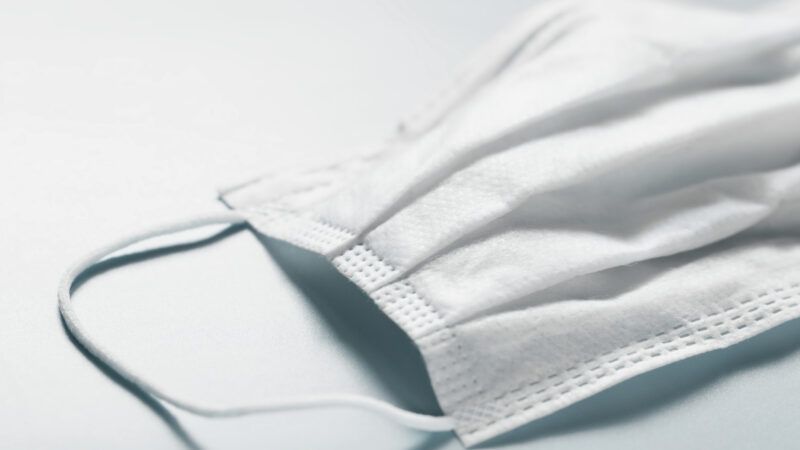A North Carolina Man Was Jailed for Refusing To Wear a Mask in Court
"I never thought this could happen in this country," Gregory Hahn said.

A North Carolina man was jailed for 24 hours for contempt of court last week. His offense? Refusing to wear a mask in court.
On October 10, Gregory Hahn arrived at a Harnett County, North Carolina, courthouse to report for jury duty. There were no local mask ordinances in place and no mask mandate at the courthouse.
"There were signs saying no masks were required," Hahn later told WRAL, a local news station.
However, Judge Charles Gilchrist had his own rules. After arriving, Hahn and the other 98 potential jurors were informed that masks would be required in Judge Gilchrist's courtroom. "You can go in any district courtroom without a mask, you can come into superior clerk court without a mask and the [district attorney's] office without a mask, but with Judge Gilchrist he has a mandate that you must wear a mask," Clerk of Superior Court Renee Whittenton told WRAL, adding that, of the superior court judges in the county, Gilchrist is the only one with a mask mandate.
When Hahn refused to mask, he found himself behind bars.
While judges have wide latitude to find individuals in contempt of court—including for failing to abide by the personal rules of the judge—this case shows how easily judges can abuse their power to punish people for seemingly innocuous offenses.
According to WRAL, Hahn was sent to speak with Gilchrist directly about his refusal. After Gilchrist asked him again to wear a mask and he again refused, Gilchrist sentenced Hahn to 24 hours in county jail, after which he was swiftly taken into custody and held with no bond.
"The irony of all this whole thing is the judge was talking to me without a mask on," Hahn added.
Hahn, a single father, says Gilchrist denied him the ability to call his son. "I was dumbfounded," Hahn told WRAL. "I never thought this could happen in this country."
While Hahn was shocked by Gilchrist's response, there's nothing illegal about it. In the United States, judges are given broad power to jail, fine, or otherwise punish individuals for contempt of court. "I'm not surprised," Lisa Wayne, the executive director of the National Association of Criminal Defense Lawyers, tells Reason. "The judge has complete jurisdiction to make rules within their courtrooms, as long as it is not inconsistent to any kind of constitutional right that someone might have." Wayne notes that she once "had a judge who would not allow women to wear pants in the courtroom—pantsuits. That was the rule of the court, or we would be found in contempt."
Hahn may not have broken any laws when he refused to wear a mask in Judge Gilchrist's courtroom—but he was jailed nonetheless. While judges should be able to maintain order in their courtrooms, a particularly draconian judge can easily make offending their personal preferences into a jailable offense. Hahn's run-in with such a judge is a perfect example of how this power can be abused—and how easily one can fall victim to an overzealous enforcer.


Show Comments (81)